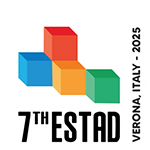Speaker
Description
Non-woven fabrics are surprisingly ubiquitous in daily life, appearing in everything from kitchen scrub pads and disposable floor wipes to baby diapers, building vapor barriers, and even aircraft insulation. These materials offer unique advantages in functionality, durability, and adaptability, making them indispensable across a variety of industries. One lesser-known—but highly impactful—application of non-woven materials are process roll covers for sheet finishing lines, where non-woven materials provide distinct benefits over traditional roll materials such as elastomers, urethane, and metal. However, these non-woven rolls are often misunderstood and misapplied, limiting their effectiveness and generating stubbornly unfair negative opinions.
This non-commercial presentation provides a comprehensive yet accessible overview of non-woven process rolls specifically designed for metallurgical process lines, particularly in sheet finishing applications from pickling to coating and plating. It will outline the fundamentals of non-woven roll design, production, and function, offering a clear perspective on why these materials are increasingly used in demanding industrial environments. The discussion will focus on the four (4) primary advantages that non-woven rolls offer over conventional materials, and the three (3) most common vulnerabilities of non-woven process rolls will be examined, providing a balanced perspective on their limitations and best-use cases.
Beyond process rolls, this presentation will briefly explore other applications of non-woven materials, particularly in surface cleaning and defect mitigation through enhanced friction, where they serve as innovative alternatives in metallurgical finishing. This presentation will be delivered in a straightforward, no-nonsense manner to engage both technical professionals and laypersons alike, offering a deeper appreciation for the versatility of non-woven materials in modern manufacturing.
